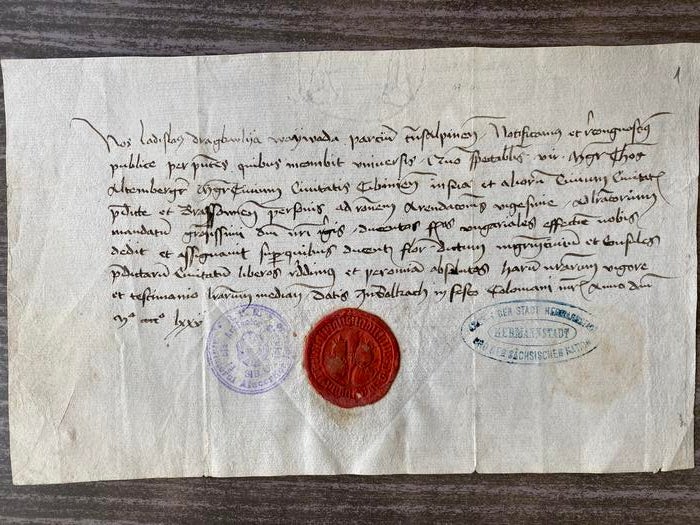Vlad the Impaler’s letters suggest iconic inspiration behind Dracula may have been vegan
If Vlad III had been vegan or vegetarian, it may not have been an ethical choice, scientists say
Your support helps us to tell the story
From reproductive rights to climate change to Big Tech, The Independent is on the ground when the story is developing. Whether it's investigating the financials of Elon Musk's pro-Trump PAC or producing our latest documentary, 'The A Word', which shines a light on the American women fighting for reproductive rights, we know how important it is to parse out the facts from the messaging.
At such a critical moment in US history, we need reporters on the ground. Your donation allows us to keep sending journalists to speak to both sides of the story.
The Independent is trusted by Americans across the entire political spectrum. And unlike many other quality news outlets, we choose not to lock Americans out of our reporting and analysis with paywalls. We believe quality journalism should be available to everyone, paid for by those who can afford it.
Your support makes all the difference.The inspiration behind Dracula may have actually been vegan or vegetarian, reveals new research.
The iconic 15th century prince Vlad III, who inspired Bram Stoker to create the character of the fictional vampire, lived in the southern region of Romania in the mid-1400s.
Also known as Vlad the Impaler, the military ruler is said to have likely killed over 80,000 people, many by impalement, as per historians.
A new chemical analysis of the letters penned by the prince have unravelled details about his health and the environment in which he lived, according to researchers, including Maria Gaetana Giovanna Pittalà from Catania University in Italy.
New research, a set of which published in the journal Analytical Chemistry recently, extracted thousands of fragments of protein molecules from the surface of these letters and isolated about 500 of those that showed signs of degradation, indicating they were over 500 years old.
Researchers isolated a further 100 of the most degraded proteins, which were likely the oldest.
About 16 of these protein molecules were said to be of human origin and had most likely come from Vlad III.
These proteins suggest Vlad III may have suffered from respiratory issues, especially a condition called hemolacria, that may have caused him to cry literal tears of blood.
“He might also have suffered from a pathological condition called hemolacria, that is, he could shed tears admixed with blood,” scientists wrote in the study.
Study co-author Gleb Zilberstein said there was also an absence of animal food proteins among the molecules extracted from the letter.
“Food proteins are found only in plant foods. The prototype vampire may have been a vegan,” Dr Zilberstein told The Times.
If Vlad had been vegetarian or vegan, it may not have been an ethical choice as it is during modern times, scientists said.

Europe had a “very cold climate” during the time Vlad lived, with very little food.
Even aristocrats in Europe reportedly had a very meagre diet at the time, with rare meat consumption.
“Dracula may have been vegetarian or vegan due to poor diet or poor health,” Dr Zilberstein said.
The new findings reveal how similar techniques can shed more light on historical personalities based on documents they authored.
While more medieval people may have touched these documents, the most prominent ancient proteins “should be related to Prince Vlad the Impaler, who wrote and signed these letters”, scientists said.



Join our commenting forum
Join thought-provoking conversations, follow other Independent readers and see their replies
Comments